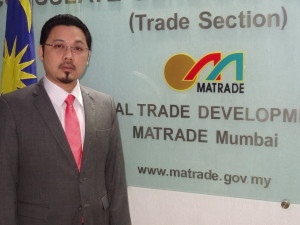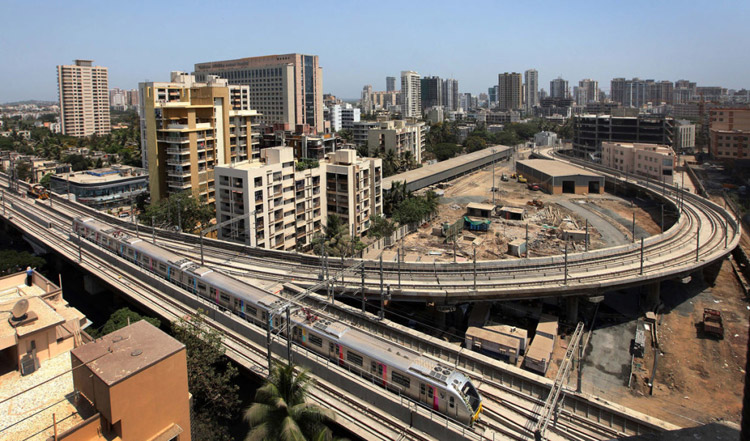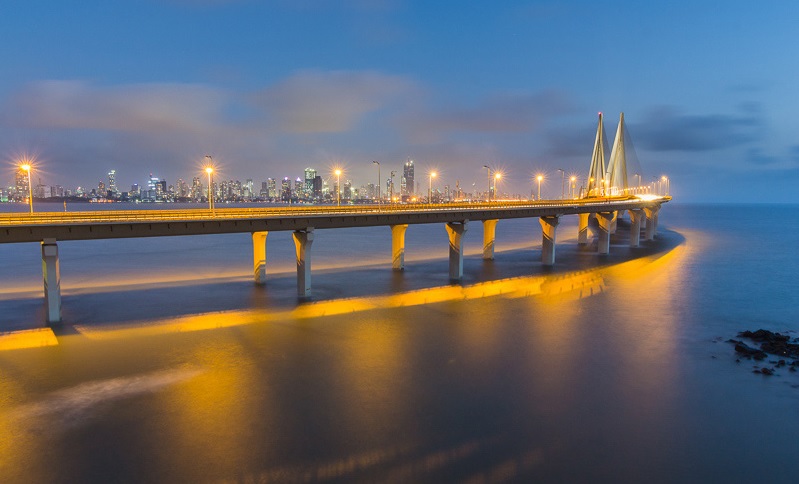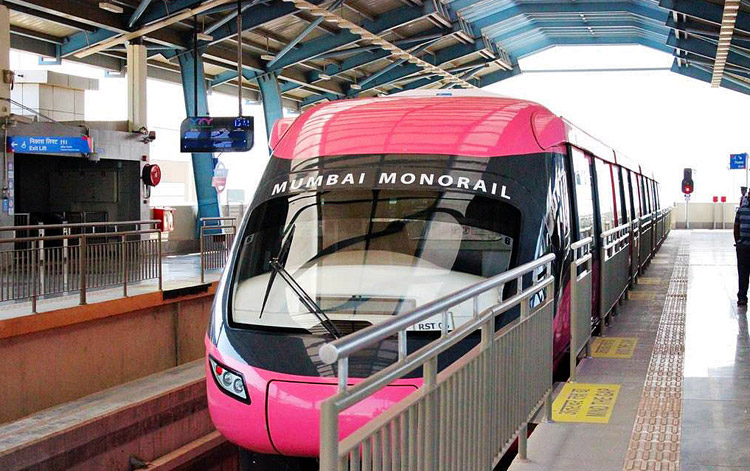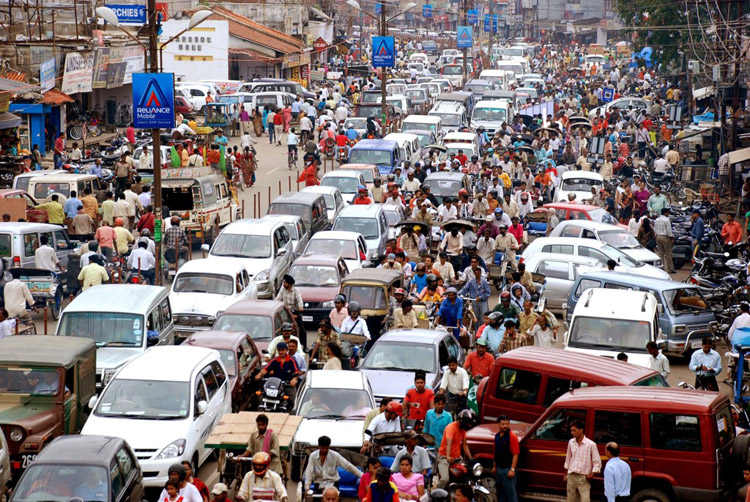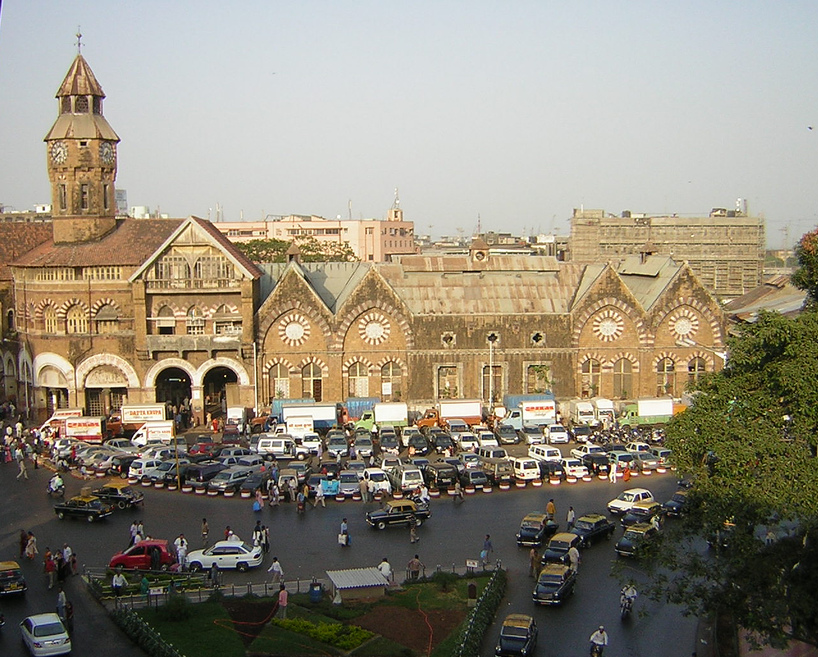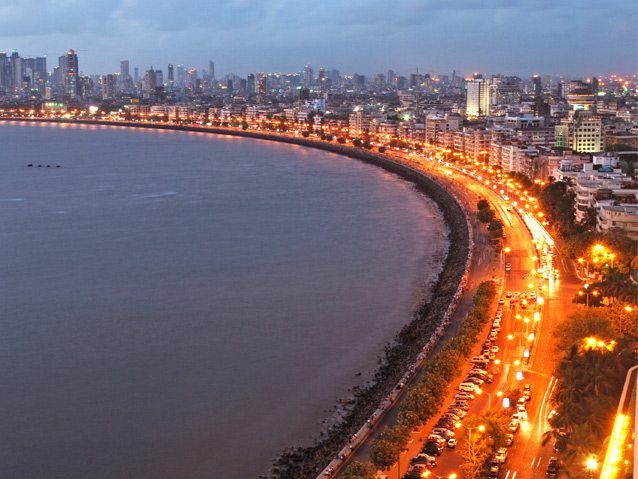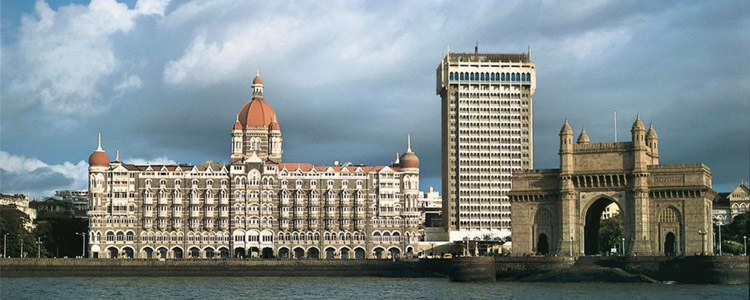Mumbai: Home to the Rebirth of India’s Growth
Message by MATRADE Trade Commissioner
in Mumbai, India
“Incredible India” – a slogan used in promoting India as a tourist destination but it is also perhaps aptly used in describing the current emergence of India. After years of economic stagnation, the second most populous country in the world has suddenly back in the limelight!
The sudden interests with India are mainly due to the new government’s pro-investment policies and policy reforms which has garnered stronger interest from global investors.
India’s prospects look promising whereby it is forecasted the economy will grow by 7.8 per cent in Financial Year (FY) 2015-16 compared to 7.4 per cent growth in FY 2014-2015. The growth is expected to expand to 8.2 per cent in FY 2016-17. The International Monetary Fund (IMF) has deemed India to be the fastest growing big emerging market economies and the growth rate is expected at around 7.5 per cent in FY 2015-16. Meanwhile, the Asian Development Bank (ADB) estimated that India’s growth rate could surpass that of China in FY 2015 – 16.
Trade and economic relations drive the good relations that Malaysia and India currently have. In 2014, Malaysia-India bilateral trade rose 3.5 percent to USD13.84 billion from USD 13.37 billion in 2013. Malaysia’s exports to India expanded by 19.5 percent to USD 9.76 billion, while imports decreased by 21.7 percent to USD 4.07 billion. Last year, India stood as Malaysia’s 11th biggest trading partner. Malaysia’s main exports are palm oil; crude petroleum; electrical & electronic products; and chemicals & chemical products.
There are plenty of rooms for diversification of trade between Malaysia and India especially in the areas of services such as green energy; infrastructure; building and construction; food & beverage; ICT; retail and many others. Malaysian companies need to explore opportunities in these awning sectors and leverage on the Malaysia-India Comprehensive Economic Cooperation Agreement (MICECA) as well as the presence of MATRADE offices in the country to further strengthen business cooperation.
Indian consumers are unique and have evolved tremendously. At the same time, the country offers vast opportunities for Malaysian companies to grab. Taking into account the fast-growing second tier markets in India such as Pune, Hyderabad and Ahmedabad, Malaysia External Trade Development Corporation (MATRADE) will be more than happy to assist the Malaysian companies planning to penetrate India’s market.
I wish to congratulate MASSA for publishing this newsletter and their continuous effort towards the development of the bilateral trade between India and Malaysia.
Thank you.
Mazlan Harun
Trade Commissioner
MATRADE Mumbai
Mumbai: Home to the Rebirth of India’s Growth
Overview of Mumbai
Mumbai holds the pride of being the wealthiest city in the country, with the highest Gross Domestic Product (GDP) in terms of Purchasing Power Parity (PPP) valued at USD 209 billion (2012). This capital city of Maharashtra is the sixth most populous city in the world, with a total population of about 21 million. It has been rated among the top 10 centres for commerce and is aptly known as the commercial and the entertainment capital of India.
This vibrant metropolitan is the financial backbone of India and also has two of the major seaports in the country. It is home to major financial institutions such as Reserve Bank of India, the National Stock Exchange of India, Bombay Stock Exchange and corporate headquarters of several prestigious Indian companies and various multi-national corporations.
The increasing business opportunities offer the people of Mumbai, a better potential for a higher standard of living. People of this city are presented with a throbbing and bustling commercial life as it houses the largest port of India, a colossal film industry along with two airports, numerous pubs, bars and restaurants. It is considered to be the central hub for trade, industries and business. The present scenario of Mumbai indicates that it is a growing centre of media activities and advertising.
Economy of Mumbai
Mumbai is home to the Hindi film industry, popularly known as Bollywood, which produces more than 900 movies a year. The range of Bollywood films with its techniques in melodrama, dance, action, songs and acting skills have conquered many hearts across the world and keep the viewers glued onto the screen for hours.
Though once dominated by the cotton textile industry, the city’s economic base is now diversified. Textiles still remain important, but the city’s industries include petrochemicals, automobile manufacturing, metals, electronics, engineering, food processing, and a wide range of light manufacturing. Some of India’s largest and wealthiest industrial conglomerates, such as the Reliance Industries Limited, Aditya Birla Group, Godrej, and Tata & Sons have made Mumbai their home. More specialised economic activities include diamond cutting and computers.
The city serves as an economic hub of India, contributing 10% of factory employment, 25% of industrial output, 33% of income tax collections, 60% of customs duty collections, 20% of central excise tax collections, 40% of India’s foreign trade and US$888 million in corporate taxes. This economic powerhouse of India not only contributes the highest GDP of 6.16% but is also responsible for 70 % of capital transactions to the nation’s economy. The per capita income for the city is a little more than three times that of India. Estimates by the UN suggest that Mumbai is likely to have a population of around 27 million by 2020. By 2020-21, its GDP Per capita at PPP is expected to reach US$ 23,000.
Infrastructure in Mumbai is currently being upgraded to match other metropolitan cities of the world and to cater to the need of transportation for its huge population. India’s premiere monorail system is built in Mumbai by SCOMI (Malaysia) in a joint venture with L&T (India). The international airport terminal was also recently upgraded to increase the flow of business and tourism in the city. Malaysia Airlines and Malindo Air have daily direct flights into Kuala Lumpur to further increase the connectivity between the two cities.
There are two major ports in Mumbai area, the Mumbai Port and Jawaharlal Nehru Port (also known as Nhava Sheva Port). Jawaharlal Nehru Port (JNPT) is the largest container port in India. It is located south of Mumbai in Maharashtra, the port on the Arabian Sea. JNPT handles containers, liquid bulk & cement ships. Major exports from Jawaharlal Nehru Port are textiles, sporting goods, carpets, textile machinery, boneless meat, chemicals and pharmaceuticals. JNPT is ranked 24th among top 100 container ports in the world, handles about 60% of total containers in India. It is directly connected with 24 Container Freight Stations (CFSs) and 34 Inland Container Depots (ICDs) destinations spreading all across India. Over the last financial year, April 2014 to March 2015, Mumbai port was used to import 13.4 million tonnes of Crude Oil followed by Petroleum, Oil and Lubricants (POL), Bulk Chemicals, Fertilisers, Iron & Steel, Cement and Vegetable Oil such as Palm Oil.
Investment and Trade Opportunities in Mumbai
One of the most important things about India is the high growth potential mostly driven by the emerging middle class people. According to Ernst & Young, India’s middle class was at around 50 million people, or 5% of the population in 2010. This population is expected to grow steadily over the decade, reaching 200 million by 2020. The growth is expected to accelerate, reaching 475 million by 2030, exceeding the people in China and the global middle class worldwide. However, various sources estimated India’s current middle class population is around 250 to 300 million people. In 2005, private consumption of the middle class accounted for US$ 372 billion – almost 60 % of total GDP and it is expected to quadruple by 2025.
Mumbai too, is experiencing the same trend. However, the city should not be viewed as just a market of 21 million people but from the overall perspective; in terms of the access it provides through the ports and inland connectivity – roads and railways into the rest of the country. The facilities in Mumbai make connectivity with other businesses, traders and financial institutions an ease. However, there are a lot of competitions in the city, creating a need for businesses to find and create various avenues to further expand their potentials.
Being a trading hub, Mumbai provides a market for a big range of products such as chemicals; machines and parts and components; fashion apparel and accessories; rubber based products; medical products; timber based building materials; furniture; electrical and electronic products; and metals. Fast Moving Consumer Goods, has strong growth potential because of the rise of disposable income amongst the middle class. Food and beverages such as jams, jellies, snacks, biscuits, confectionaries, pasta and noodles have a strong demand in India. On the other hand, Malaysia can be very competitive in personal care products such as cosmetics, face wash, body and hand soaps, shampoos and conditioners, personal hygiene products and many others.
The city is also a key market for growth services industry with increased growth in construction and infrastructure development activities in the city as well as the country. Many Malaysian companies have completed projects in and around the city including the monorail connecting the suburbs, expressway construction connecting Mumbai to Pune, redevelopment projects at slums and parking services in the city.
India is also actively providing a platform for various International companies to establish themselves in the country. Under the “Make in India” program recently launched under the Prime Minister’s office, 25 thrust sectors have been identified for promotion of investment in India including, Automotive parts and Components, Chemicals, Electronic systems, Food Processing and Renewable Energy. The Delhi Mumbai Industrial Corridor (DMIC) also has been established by the government to promote various manufacturing clusters for various products and systems. The prime advantage of the DMIC is that one of its ends is located next to JNPT from where goods can easily be imported as raw materials for manufacturing and then exported after value-addition is done to the product.
Tips for Doing Business in Mumbai
Majority of Indian companies are looking at adding value to their products locally rather than importing finished products due to the higher margin and the tax structures that favour the local production more. The dominant style of doing business in India include through joint ventures, partnership, tie ups with local company for production in India. Businesses can also take advantage of India’s population and the availability of cheap labour force.
Foreign companies could enter into strategic alliances with Indian partners where sectorial caps do not allow foreign companies to set up business on its own. Reserve Bank of India and Foreign Investment Promotion Board approvals may be required where proposed acquisition is beyond sectorial caps and are easier to get with an Indian partner.
Having said this, Mumbai still offers an abundance of export opportunities for Malaysian companies. Appointing an agent/ importer/ distributor is still the ideal strategy to penetrate the market compared to doing the entire marketing efforts alone. The advantage of this strategy is that the company gets an established distribution / marketing set up of the Indian partner. It also allows easy access to financial resource and contacts of the Indian partners which help grow the business faster at an initial stage. However it is advised for the companies, for a start, to appoint the agent/ importer/ distributor according to region in India.
Malaysian-Indian businessmen should leverage on the Person of Indian Origin (PIO) Card which would give them several advantages such as no requirement of visa to visit India; have acquisition and holding in India; and the ability to open local bank accounts. A complete registration of business costs a minimum of USD 300 with an average time of 45 – 60 days, depending on the type of business activity.
Some of the major challenges that are faced by many international firms include , the high inflation rate, marketing and distribution costs, and foreign exchange fluctuation which all will further increase the cost of the product or services in an already price-sensitive and competitive market. Office space rental, local staff salaries and allowances add up to a high initial investment to open an office in Mumbai. Infrastructure bottlenecks and bureaucratic red tapes also increase the time of doing business. Therefore a patience but consistent follow up is required to develop long term relationships which further assist in good long term business.
Dealing with local businesses needs rigorous and constant but polite follow up to develop relations and further the growth of business. Majority of Small and Medium Enterprises (SME’s) are family owned businesses and treat business as an extension of the family. Developing personal relations help grow the business relations and vice versa. From general observations, common factors for failure in penetrating the Indian market by foreign companies include shallow commitment where relationship is purely based on business and centered on profits and nothing else. Indians businesses are generally based on relationship culture and viewed friendship and kinship more important than expertise. A short-term or hit-and-run focus is another common reason for failure which should be avoided.
In summary, India is a market with huge potential and strong growth, with Mumbai as a great gateway to enter the market. The city helps establish a company, create strong network and setup channels of distribution. However, it is important to understand that it is a slow process, from government formalities to finding the right partners and establishing relations, but once established, it reaps long term benefits.
Contact Details of MATRADE’s office in Mumbai, India
Mr Mazlan Harun Trade Commissioner Consulate General of Malaysia Trade Section (MATRADE) Suite 301, 3rd Floor, Naman Centre Block G, Bandra Kurla Complex, Bandra (E) Mumbai 400051 INDIA Tel: +91 22 2659 7272 / 3 Fax: +91-22 2659 7274 Email: mumbai@matrade.gov.my
